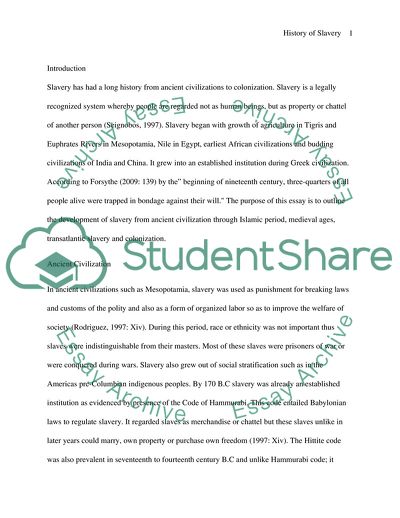Cite this document
('Slavery has a long history.' Discuss Essay Example | Topics and Well Written Essays - 1500 words, n.d.)
'Slavery has a long history.' Discuss Essay Example | Topics and Well Written Essays - 1500 words. https://studentshare.org/history/1809670-slavery-has-a-long-history-discuss
'Slavery has a long history.' Discuss Essay Example | Topics and Well Written Essays - 1500 words. https://studentshare.org/history/1809670-slavery-has-a-long-history-discuss
('Slavery Has a Long history.' Discuss Essay Example | Topics and Well Written Essays - 1500 Words)
'Slavery Has a Long history.' Discuss Essay Example | Topics and Well Written Essays - 1500 Words. https://studentshare.org/history/1809670-slavery-has-a-long-history-discuss.
'Slavery Has a Long history.' Discuss Essay Example | Topics and Well Written Essays - 1500 Words. https://studentshare.org/history/1809670-slavery-has-a-long-history-discuss.
“'Slavery Has a Long history.' Discuss Essay Example | Topics and Well Written Essays - 1500 Words”. https://studentshare.org/history/1809670-slavery-has-a-long-history-discuss.


